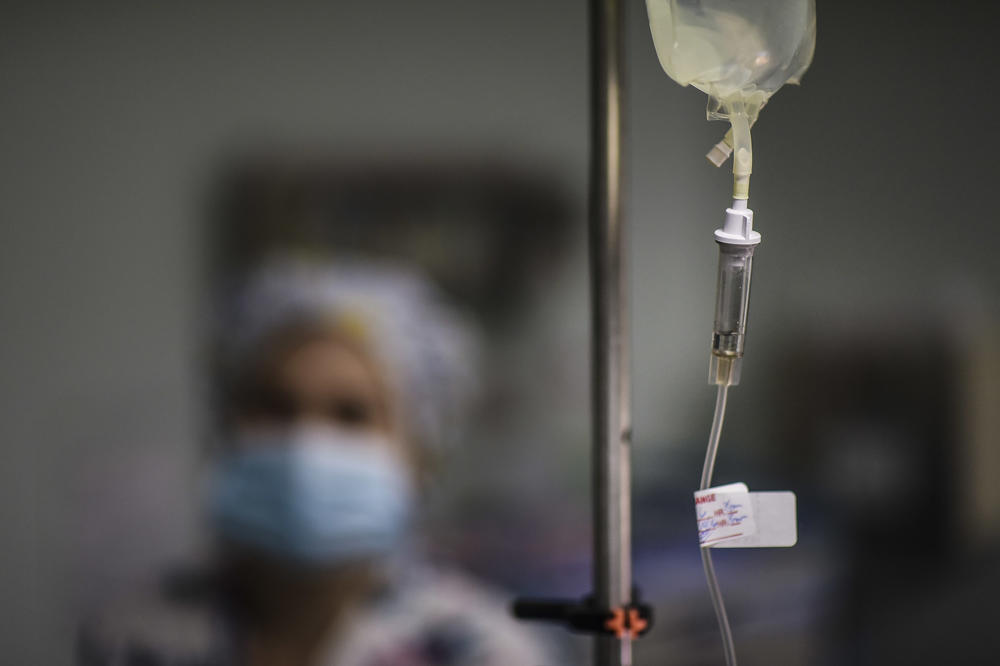
Caption
Georgia continues to experience a shortage of health care workers as physicians, nurses, PAs, and other health care workers exit due to stress and unsustainable work expectations.
Credit: (AP Photo/Carlos Giusti)
LISTEN: A Georgia bill signed this year guarantees privacy for Georgia health care workers who use employer provided mental health programs. GPB’s Ellen Eldridge explains.

Georgia continues to experience a shortage of health care workers as physicians, nurses, PAs, and other health care workers exit due to stress and unsustainable work expectations.
Your doctor can burn out, too.
Even before the pandemic, overwhelmed nurses and hospital emergency room staff felt stressed.
In 2017, Georgia-based OB-GYN Dr. Keisha Callins led a physician wellness burnout prevention program with the Medical Association of Georgia.
"This is personal," Callins said, mentioning a colleague's suicide. "We got to take care of each other so that we can keep taking care of our patients."
Anything to keep people in practice, keep people healthy, especially in rural communities, is huge, Callins said.
During the pandemic,when existing issues worsened, the task force evolved into what is now the Georgia Resilience Innovation Team.
"In the process of our work, we realized that the protections that we have for talking to a therapist do not extend to your participation in the (employer provided) wellness program," Callins said, citing a case in Virginia where a physician's spouse took him to court and used his mental health records against him in divorce court.
But through the Georgia task force's work partnering with advocacy groups and lawmakers, a new bill better protects health care workers from burnout by allowing more privacy when seeking behavioral health care.
Medicine is a very isolating profession, said Dr. Sterling Ransone, a family physician in rural Virginia.
"I think that because we do tend to isolate a little bit, we really needed an outlet," Ransone said.
Ransone founded SafeHaven in 2020. Like Callins, Ransone lost a medical school classmate to suicide.
Stigma and shame often precede suicide, studies have shown, and some doctors avoid asking for help because they fear losing hospital privileges via the credentialing process, the American Hospital Association reports.
After polling hundreds of physicians, Ransone found many feared losing their jobs or licenses if their employers found out how they felt, emotionally.
"There was a fear when we talked to folks that that their health status or mental health status could be discovered and used against them if there were a medical malpractice case," Ransone said. "And actually, in the Commonwealth of Virginia, up until safe haven laws were passed, physician mental health records were considered discoverable for anything."
Georgia's mirroring what Virginia is doing, Callins said.
"Now that we have that confidentiality in place, we actually have a pilot project (that we're) going to launch our own SafeHaven program," she said, "which is a service that will be available to physicians and health care workers across the state."
If you or someone you know is in crisis, please call the National Suicide Prevention Lifeline at 988 or the physician support line at 888-409-0141.
Georgia Health Initiative is a non-partisan, private foundation advancing innovative ideas to help improve the health of Georgians. Learn more at georgiahealthinitiative.org